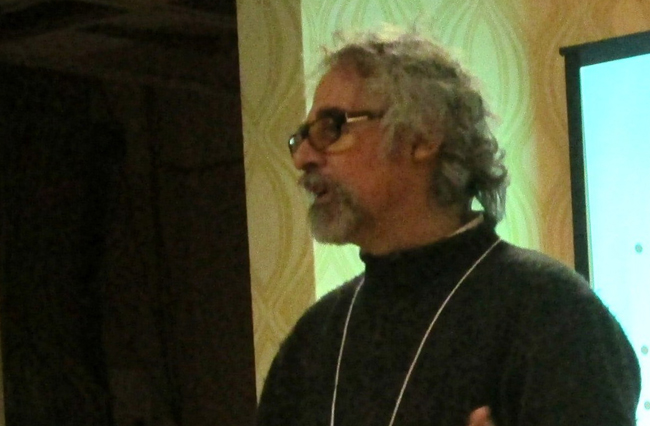Justice system worst place for FASD-affected

By Leslie Knibbs
SUDBURY – People affected by Fetal Alcohol Spectrum Disorder and finding themselves caught up in the justice system just want to get the hell out of where they are.
Lawyer Jonathan Rudin, Program Director with Aboriginal Legal Services of Toronto (ALST), was describing the scenario for participants in his workshop at the Dec. 3-5 Anishinabek G7 “Circle of Hope” conference.
“Court is the worst place for an FASD affected individual.” According to Rudin, an FASD individual facing interrogation or court will do anything to get out of the situation they find themselves in, whether it be making a false confession during interrogation or pleading guilty in court to something they did not do. Lack of executive function of the brain or making good judgement is a problem for an FASD affected person.
Rudin said there is no evidence to suggest FASD is more prevalent in the Aboriginal community. He praised the fact Aboriginal communities are taking the lead in public education about FASD.
When an Aboriginal woman who is pregnant goes to her doctor, he said, the first question asked is “Have you been drinking since you became pregnant?” He stressed this is never asked of a non-Native woman.
“Canada does not have the capacity to diagnose new babies today (for FASD), and is constantly falling further behind (in diagnosing newborns).”
He noted that all treatment programs dealing with FASD individuals in the criminal justice system are cognitive-based, thereby compounding the problem since an FASD-affected individual cannot pick up on cues, and has difficulty following rules. This dilemma can lead to an accused not following probation conditions and inevitably lead to breaches bringing the affected individual back to court and in some cases, to jail.
A former corrections officer, identifying himself as “Mark”, reinforced Rudin’s presentation.
Now living in Batchewana First Nation, Mark worked for many years in the now-closed maximum-security penitentiary in Kingston. He eventually took a job in the Sault Ste. Marie Detention Centre, and shared a story of an FASD affected individual who ended up double bunking with a recent transfer from a federal maximum security facility.
Noting that the FASD inmate was “easily led”, he said putting these two inmates in the same cell was one of the sparks that set off a near riot at the Sault facility two years ago.
When Rudin asked that all lawyers in his workshop stand up, the only one standing was Rudin himself. Other than Mark, the corrections officer and some Rudin’s staff from Toronto, there was no one from the justice system present at the conference.


